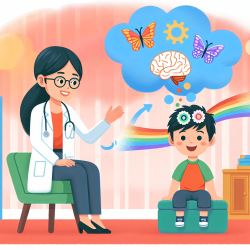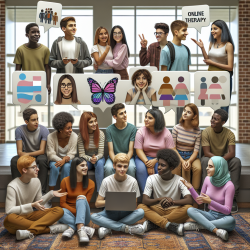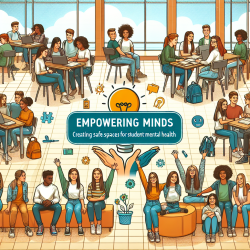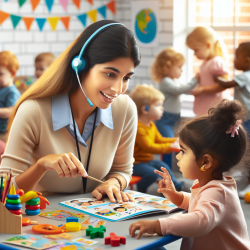Unlocking the Secrets of Language Processing in Blind Individuals
Recent research has shed light on the remarkable ways in which blindness can alter the neural mechanisms of language processing. The study, titled A Sensitive Period in the Neural Phenotype of Language in Blind Individuals, provides compelling evidence that congenital blindness leads to unique adaptations in the brain's language network. These findings have significant implications for speech-language pathologists and educators working with blind individuals, particularly in the context of online therapy services like those offered by TinyEYE.
The Study: Key Findings
The research conducted by Pant, Kanjlia, and Bedny (2020) at Johns Hopkins University and the University of Hamburg explored how congenital and adult-onset blindness affect language processing. The study involved three groups: congenitally blind individuals, adult-onset blind individuals, and sighted controls. Through a series of experiments, the researchers discovered that:
- Congenital blindness leads to the recruitment of "visual" cortices for language processing, a phenomenon not observed in adult-onset blindness.
- The fronto-temporal language network is less left-lateralized in congenitally blind individuals compared to those who lost their vision as adults.
- Congenitally blind individuals show heightened sensitivity to grammatical complexity in language tasks, a sensitivity not found in adult-onset blind individuals.
Implications for Practitioners
These findings underscore the importance of early intervention and tailored approaches in language therapy for blind individuals. Here are some actionable insights for practitioners:
- Emphasize Early Intervention: The study highlights the significance of a sensitive period during which the brain is particularly receptive to language input. Early intervention can leverage this period to optimize language outcomes for congenitally blind children.
- Adapt Therapy Techniques: Given the unique neural adaptations in congenitally blind individuals, therapists should consider incorporating auditory and tactile modalities to enhance language processing.
- Encourage Further Research: Practitioners are encouraged to stay informed about ongoing research in neural plasticity and language development in blind individuals to continually refine their therapeutic approaches.
Looking Ahead
The study's findings open up exciting avenues for further research. Understanding the neural plasticity associated with blindness can inform the development of innovative therapeutic strategies that harness the brain's adaptability. As we continue to explore the intricate relationship between sensory experience and language development, practitioners can play a pivotal role in translating these insights into practice.
To read the original research paper, please follow this link: A Sensitive Period in the Neural Phenotype of Language in Blind Individuals.










